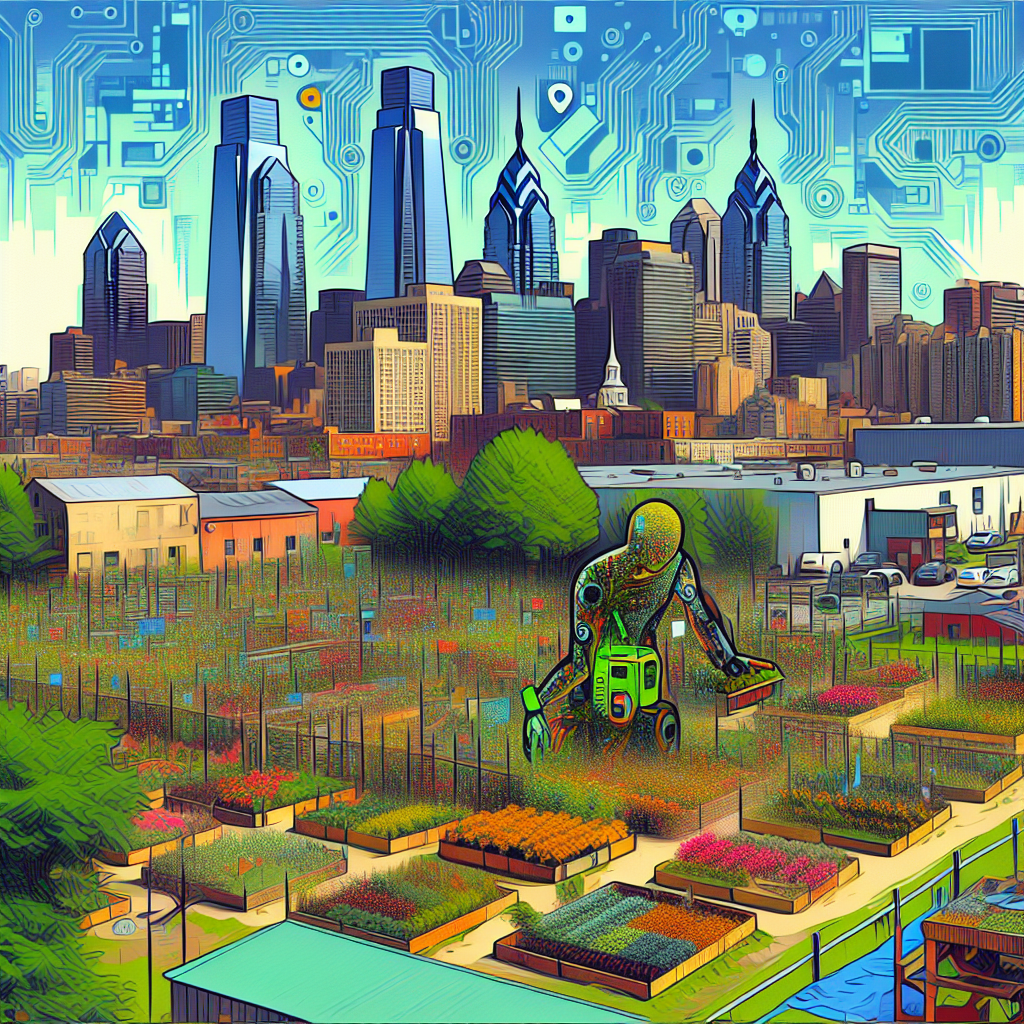The Role of Community Gardens in Fostering Urban Sustainability in Philadelphia
Explore the significance of community gardens in Philadelphia, from historical roots to environmental, social, and economic benefits. Learn about successful initiatives, challenges, and the future of community gardening in the city, and discover the call to action for continued support and engagement.

Introduction to Community Gardens in Philadelphia
Community gardens in Philadelphia serve as essential green spaces that promote social cohesion, address food insecurity, and contribute to the city's environmental sustainability. These communal spaces provide opportunities for residents to cultivate fresh produce, engage in community-building activities, and enjoy the benefits of urban agriculture. In this article, we will delve into the definition, historical context, and importance of community gardens in Philadelphia.
Definition and Purpose of Community Gardens
Community gardens are defined as shared spaces where individuals or groups come together to grow fruits, vegetables, flowers, and herbs. These gardens serve multiple purposes, including enhancing food security, providing access to fresh produce, promoting healthy eating habits, and fostering a sense of community among participants.
According to the American Community Gardening Association, community gardens are described as 'collaborative projects on shared open spaces where participants share in the maintenance and products of the garden, including healthful and affordable fresh fruits and vegetables.'
Historical Context of Community Gardens in Philadelphia
The roots of community gardening in Philadelphia can be traced back to the late 19th century when vacant lots and abandoned spaces were transformed into productive gardens by local residents. During the Great Depression, community gardens played a vital role in supplementing food supplies and providing employment opportunities to urban dwellers.
One of the earliest community gardens in Philadelphia, the Southwark Queen Village Community Garden, was established in the 1970s and remains a thriving green space in the city today. Over the years, community gardens have evolved from meeting immediate food needs to serving as hubs for environmental education, urban greening, and social interaction.
Importance of Community Gardens in Urban Settings
Community gardens play a crucial role in urban settings by addressing various social, environmental, and economic challenges. These green spaces help mitigate urban heat island effects, improve air quality, promote biodiversity, and enhance overall quality of life for city residents.
Dr. Sarah Taylor, a professor of urban horticulture, emphasizes the importance of community gardens in urban areas: 'Community gardens not only provide fresh produce but also offer opportunities for recreation, education, and social interaction. They serve as green oases in concrete jungles, enhancing the well-being of individuals and communities.'
Benefits of Community Gardens
Community gardens in Philadelphia offer a wide range of benefits, spanning environmental impact, social and health advantages, and economic contributions. Let's explore these benefits in detail.
Environmental Impact
Community gardens contribute to urban greening efforts by converting vacant lots into productive green spaces. These gardens help reduce stormwater runoff, combat soil erosion, and increase urban biodiversity. By promoting sustainable land use practices, community gardens play a crucial role in fostering ecological resilience in urban environments.
According to a report by the Philadelphia Department of Parks and Recreation, community gardens have been instrumental in improving urban air quality and reducing carbon emissions in the city. These green spaces act as carbon sinks, sequestering atmospheric carbon and mitigating the effects of climate change.
Social and Health Benefits
The social and health benefits of community gardens are well-documented, with research indicating positive impacts on physical activity, mental health, and community cohesion. By providing opportunities for outdoor recreation, gardening therapy, and social interaction, community gardens contribute to overall well-being and social connectedness.
Dr. Maria Rodriguez, a public health expert, underscores the importance of community gardens for public health: 'Engaging in gardening activities has been linked to reduced stress levels, increased physical activity, and improved dietary habits. Community gardens serve as valuable resources for promoting healthy lifestyles and preventing chronic diseases.'
Economic Advantages
In addition to their environmental and social benefits, community gardens offer economic advantages to participants and communities. These gardens provide affordable access to fresh produce, reduce household food expenses, and create opportunities for small-scale entrepreneurship.
A study conducted by the University of Pennsylvania's Wharton School of Business found that community gardeners in Philadelphia saved an average of $300 per year on grocery bills by growing their own fruits and vegetables. Furthermore, surplus produce from community gardens can be sold at local farmers' markets, generating income for gardeners and supporting the local economy.